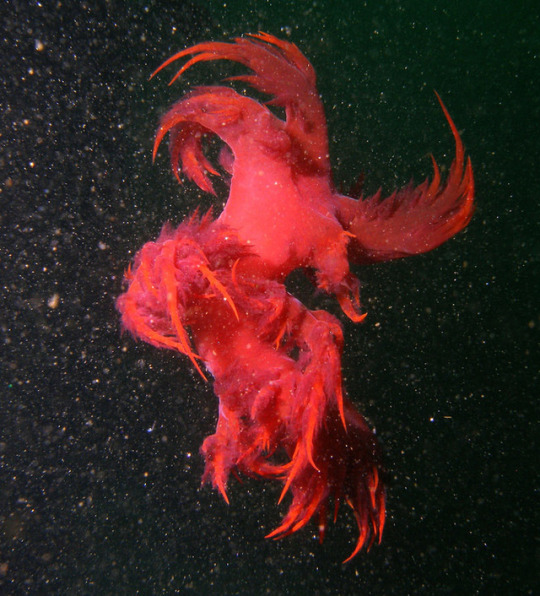#Dendronotus iris
Explore tagged Tumblr posts
Text
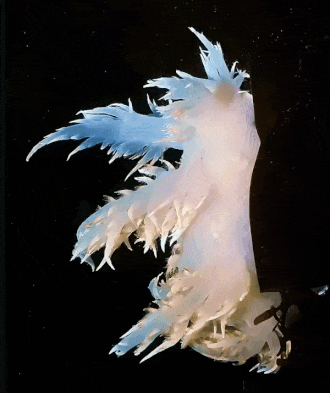
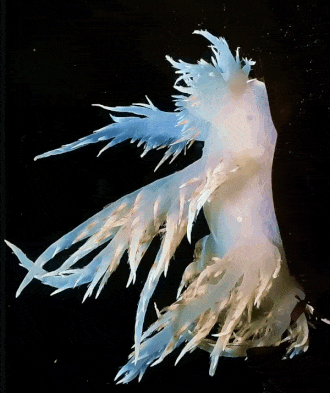
giant nudibranch (dendronotus iris) | source
#stim#nudibranchs#giant nudibranch#sea creatures#sfw#white#blue#black#underwater#animals#sea slugs#gastropods#molluscs#dendronotus iris#ishy gifs#postish
1K notes
·
View notes
Text
youtube
Some moments from nightlighting this year in the Salish Sea.
In order of appearance, this video features:
0:00 - Dendronotus iris, the giant nudibranch - first shown up close to show off its highly branched cerata, and then seen swimming. 0:22 - A harbor seal, Phoca vitulina richardii, swimming around the light while it hunts fish. 0:39 - Shrimp and fish circling the light. 1:08 - A squid jets by 1:12 - thousands of long thin larval fish school around the light 1:20 - A large cross jellyfish, Mitrocoma cellularia, pulses its bell to swim, fanning out its many fine tentacles 1:30 - many small fish swarm the pale blue light, blotting out portions of it 1:52 - a long yellow polychaete worm dances and weaves through the water column 2:04 - the crystal jellyfish, Aequorea victoria, swims with an incredible amount of Pleurobrachia bachei ctenophores and other animals in the background and then we zoom past to see more ctenophores. 2:18 - an egg yolk jelly, Phacellophora camtschatica swims by in deep blue water 2:30 - a nudibranch with long narrow cerata, Cumanotus sp., swims by swinging its body back and forth, whipping its cerata around. 2:43 - a sea gooseberry, Pleurobrachia bachei, spins through its fanned out tentacles in a gorgeous dance 2:57 - a small hydrozoan jelly with a yellow mouth and dots around its bell, Proboscidactyla flavicirrata, bounces, pulses, and then turns to the side showing off its branched radial canals 3:11 - a sea gooseberry, Pleurobrachia bachei, spins and casts rainbows with its ctenes, mouth up to the camera 3:21 - an odd gregarious jelly, Clytia gregaria, with an extra radial canal giving it a star shaped mouth, swims in the dark 3:27 - outro card "Thanks for Watching" with instagram, facebook, and bluesky icons and the handle @NonCompliantCyborg
#nightlighting#video#nudibranch#sea slug#seal#jellyfish#ctenophore#comb jelly#Clytia gregaria#Pleurobrachia bachei#Aequorea victoria#Proboscidactyla flavicirrata#polychaete#Mitrocoma cellularia#Phacellophora camtschatica#Phoca vitulina richardii#Dendronotus iris#Cumanotus#squid#Doryteuthis opalescens#my videos#Youtube
6 notes
·
View notes
Photo
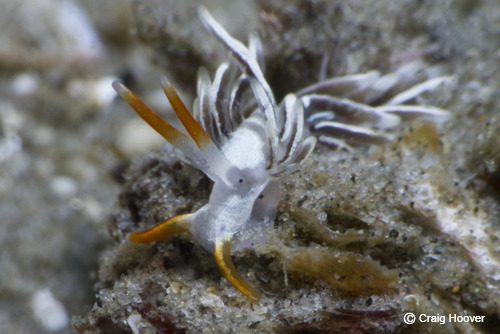
Catriona Columbiana.
The Sand Dwelling Slugs of California - Nudibranchs
Photographer: Craig Hoover
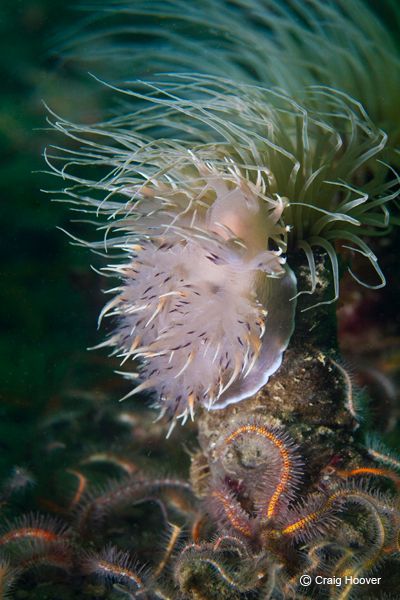
Dendronotus iris feeding on Pachycerianthus fimbriatus.
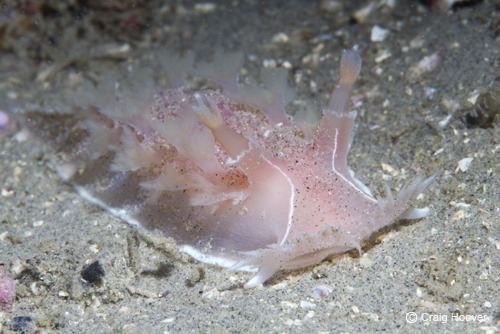
Tritonia diomedes
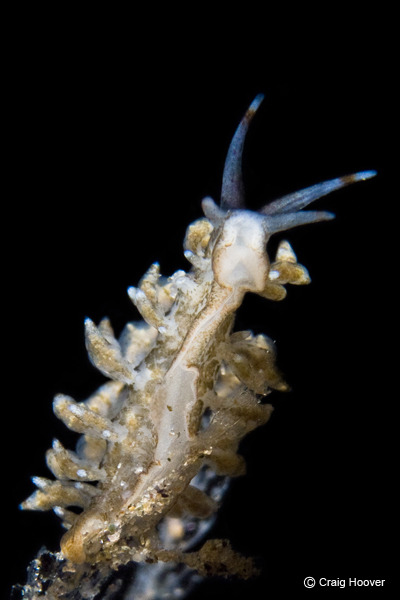
Eubranchus rustyus likes to dine on Plumularia.
#craig hoover#photographer#catriona columbiana#nudibranch#slugs#california#dendronotus iris#pachycerianthus fimbriatus#tritonia diomedes#eubranchus rustyus#plumularia#underwater photography#marine photography#nature
24 notes
·
View notes
Video
tumblr
With friends like these, who needs anemones?
1K notes
·
View notes
Photo
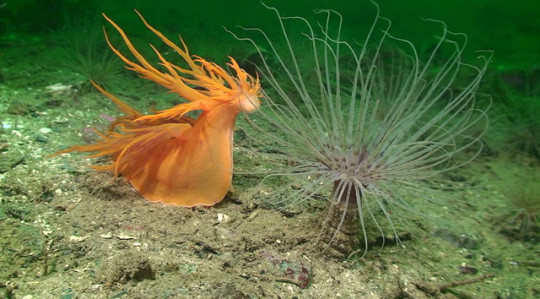
The Dendronotus iris is often called the Giant nudibranch, and for good reason. This nudibranch can grow to a whopping 30cm in length! It lives in muddy subtidal areas from northern Alaska to northern Mexico, at most 200m below the surface. Like many other nudibranchs, the Giant nudibranch has a very specific diet- it feeds solely on the tendrils of the tube-dwelling anemone (as seen in the picture). Funnily enough, the anemones sometimes pull the nudibranch into their tube when they try to hide, although no one seems to be harmed in the process.
#sorry for the inactivity! schools drawing to a close#which means its exam season#itll all be done by this Thursday#nudibranch#sea slug#ocean#marine biology#dendronotus iris#giant nudibranch#science
4K notes
·
View notes
Text
Me and my friends in sea bunny outfits :)

Left to right->
Dingus (dendronotus iris), Cheebo (yellow jorunna parva), Lucky (Chromodoris lochi), Floam (Chromodoris Annae)
45 notes
·
View notes
Photo
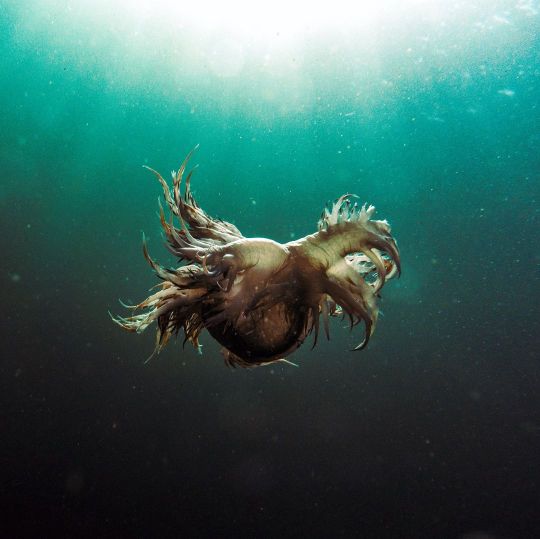



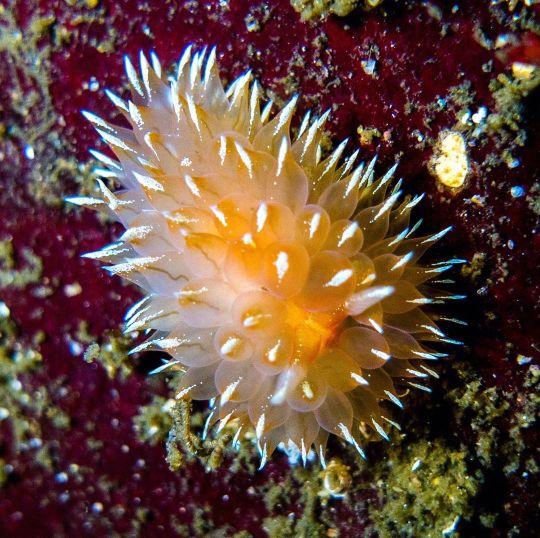

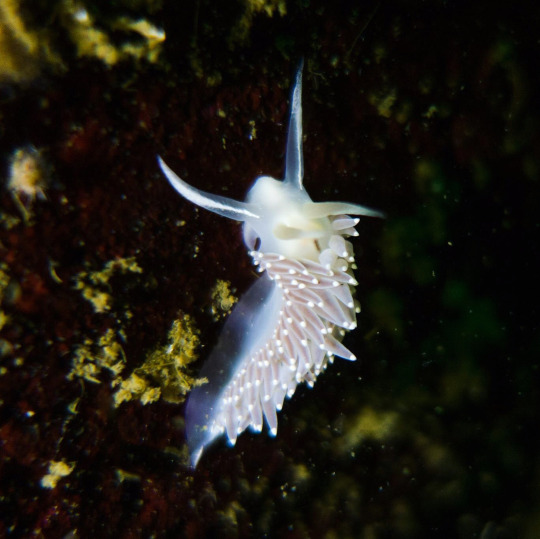
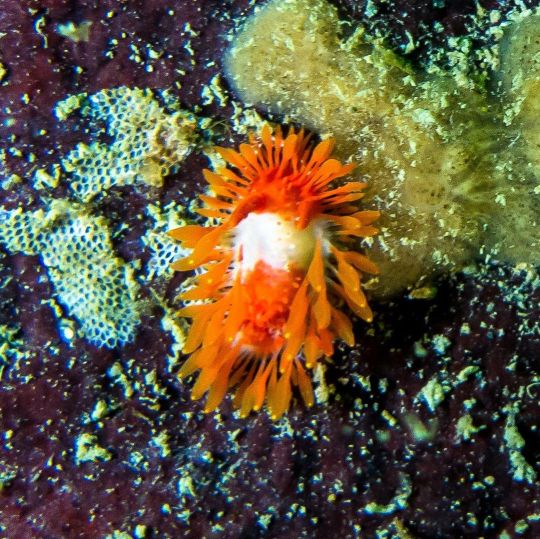
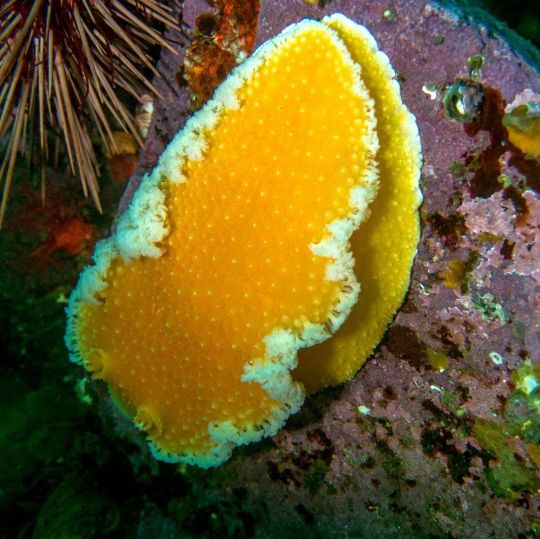

Love @pencilhoarders’ nhl teams as slugs so much! 😍
Can we also get nhl teams as sea slugs? Here’re 10 photos I took in British Columbia underwater in 2017.
① Giant nudibranch (Dendronotus iris) ② Frosted nudibranch (Dirona albolineata) ③ Clown nudibranch (Triopha catalinae) ④ Red dendronotid (Dendronotus rufus) ⑤ Frosty-tipped nudibranch (Janolus gelidus) ⑥ Golden dirona (Dirona aurantia) ⑦ Red flabellina (predaceous aeolis) ⑧ Cockerell’s dorid (Laila cockerelli) ⑨ Orange Peel Nudibranch (Tochuina gigantea) ⑩ Thousands of red flabellina at Octopus city, Sunshine Coast, BC
22 notes
·
View notes
Photo

Bad hair day? Not quite!
This is Dendronotus iris, a kind of nudibranch. Those "hairs" you see are actually branching gills, which can be tipped with white, orange, yellow, or purple. This nudibranch prowls the rocky reefs of Monterey Bay National Marine Sanctuary for anemones to chow down on.
(Photo: Chad King/NOAA)
[Image: A close view of a nudibranch, a shell-less mollusk. The nudibranch is dark red, with orange branching gills.]
#nudibranch#sea slug#mollusk#invertebrate#california#ocean#nature#divination#noaa#Monterey Bay National Marine Sanctuary#earthisblue
519 notes
·
View notes
Link
0 notes
Text
Happy Sea Slug Day!
To celebrate, here are some of my favorite sea slug pics I've taken:




From left to right, top to bottom they are:
A pair of Leopard Dorids, probably mating
A baby Dendronotus iris - also known as the giant rainbow nudibranch
Clione limacina, the sea angel
Melibe leonina, also known as the hooded or lions mane nudibranch. I edited this one in front of the Crab Nebula because the way it reflected the colors of the eel grass it was on and the textures in its body reminded me of that part of space.
If you like these, you can support my work and pick up a print from my shop: US Shop International Shop
#sea slug day#sea slugs#nudibranch#marine biology#salish sea#sea creatures#ocean#art print#sea slug#sea life#sea angel#marine life#my art#small business#shop small#ocean art
29 notes
·
View notes
Text
What do you call nudibranch eggs that look like ramen noodles? IMPASTAS!

📷: A rainbow nudibranch (Dendronotus iris) laying eggs in Monterey, spotted by Michelle Manson.
Nudibranchs grow and reproduce quickly, so they don’t have time to search the seas for a slug soulmate. Instead, they’re hermaphroditic—they have both male and female sexual organs—so meetings between two or more can be a mutual mating session.
A nudibranch’s reproductive organs are all on their right side, a result of their bodies “unwinding” from their ancestral snail form. Reproducing means lining up rhinophores to gills in a molluscan cuddle puddle before each nudibranch lays a squiggly string of slug eggs.
After about a week, the baby nudis—called veligers—hatch and drift in the currents, feasting on plankton for several weeks before settling down to morph into adults.

📷: Two mating white dendronotus nudibranchs (Dendronotus albus) perch precariously on a blade of eelgrass. Found by Phil Lemley.

📷: While most nudibranch eggs range in color from white to pale yellow, the eggs of a spanish shawl nudibranch (Flabellina iodinea) are a brilliant pink! Spotted by JR Sosky.
#monterey bay aquarium#nudibranch week#heck yes nudibranchs#rainbow nudibranch#dendronotus iris#white dendronotus#dendronotus albus#spanish shawl nudibranch#flabellina iodinea#nudi noodles
653 notes
·
View notes
Photo
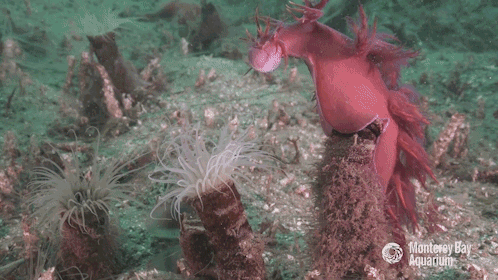

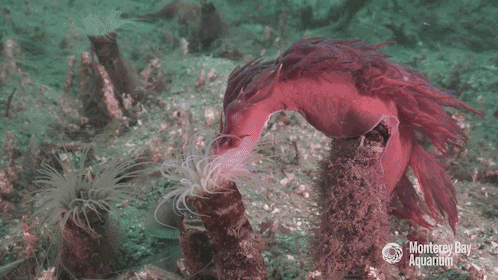
Watch this barber slug fulfill its anemoneeds!
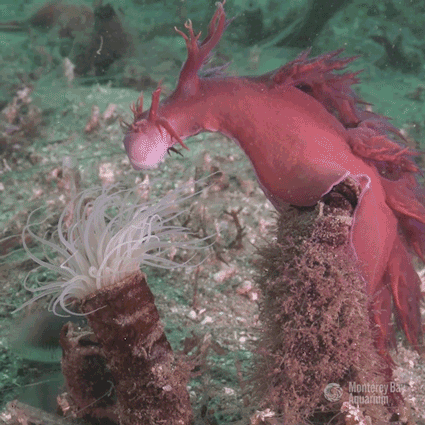
🎥Joe Platko in Monterey!
UPDATE! Hey everyone! Sorry for the confusion! Here’s more info to explain what’s going on: The anemone retreats once it feels the pinch of the barber slug’s bite. Latching on, the slug is pulled in with the anemone, not wanting to let go of its meal. Once the slug snips off a tentacle or two, it pulls itself back out of the tube and moves on to the next anemone spaghetti dish, while the anemone waits for the coast to clear before coming back out from its tube.
#monterey bay aquarium#sea slug day#dendronotus iris#barber slug#tube anemone#om nom#love your anemones#but maybe not that much
10K notes
·
View notes
